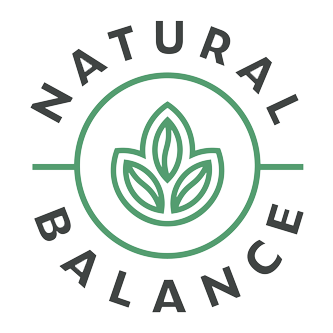Breast cancer is a formidable adversary that affects millions of lives worldwide. And you’ve probably heard that our generation of Americans are dealing with more hormone imbalance than those of generations past. Understanding the intricate connections between our hormones and the risk of breast cancer is vital in the quest for prevention and early detection.
Let’s take a closer look at the multifaceted relationship between hormone imbalance and the risk of breast cancer.
The Hormonal Players: Estrogen and Progesterone
Estrogen and progesterone, two essential hormones, play pivotal roles in the development and functioning of the breast tissue. These hormones influence cell growth, differentiation, and overall breast health. When the balance of these hormones is disrupted or altered, it can set the stage for potential breast cancer risks.
Estrogen Dominance—A Risk Factor to Watch
Estrogen, known as the “female hormone,” stimulates the growth of breast cells. When estrogen levels surge or dominate, it creates a condition called ”estrogen dominance.” This hormonal imbalance has been linked to an increased risk of breast cancer. Several factors contribute to estrogen dominance, including:
Obesity:
Excess body fat produces estrogen, contributing to higher circulating estrogen levels in the body. Maintaining a healthy weight is crucial for hormonal balance.
Hormone Replacement Therapy (HRT):
Postmenopausal women may opt for hormone replacement therapy to reverse some of the effects of menopause. This treatment often consists of estrogen and progestin. Prolonged use of this therapy, especially in specific forms, can elevate the risk of breast cancer.
Environmental Estrogens:
Exposure to environmental estrogen-mimicking substances, known as endocrine disruptors, can interfere with hormonal balance. These substances are found in certain plastics, pesticides, and chemicals.
Hormone Replacement Therapy (HRT): A Double-Edged Sword
Hormone replacement therapy, while providing relief from menopausal symptoms, can also influence breast cancer risk.
Research has revealed that long-term use of HRT, particularly those combining estrogen and progestin, is associated with an increased likelihood of breast cancer. The risk may vary depending on factors such as the type of therapy, its duration, and the timing of its initiation.
Age and Hormone Changes: The Menopausal Shift
Aging is a natural part of life, and with it comes hormonal shifts. As women age, the ovaries produce less estrogen and progesterone, leading to menopause. While this hormonal transition is normal, it can be linked to an elevated risk of breast cancer in some women. Understanding these hormonal changes is critical for informed breast health decisions. Natural Balance offers a blend of key nutrients, botanicals and herbs to support this stage of life in our Ladies Choice Life Change Formula.
Genetics and Family History: The Role of Inherited Mutations
Inherited gene mutations, such as BRCA1 and BRCA2, have gained significant attention for their association with an increased susceptibility to breast cancer.
These mutations can impair the body’s ability to repair damaged DNA and regulate hormone levels. Consequently, they may lead to hormone imbalances that heighten the risk of breast cancer.
Genetic counseling and testing are valuable tools for individuals with a family history of breast cancer.
Lifestyle Choices: Navigating Hormonal Balance
The choices we make in our daily lives can impact our hormonal balance and breast cancer risk. Some lifestyle factors to consider include:
Diet:
Opt for a balanced diet rich in fruits, vegetables, whole grains, and lean proteins while limiting processed foods and excessive red meat consumption. Incorporate cancer-fighting foods like cruciferous vegetables and berries.
Physical Activity:
Regular exercise not only helps maintain a healthy weight but also reduces inflammation and supports overall well-being.
Alcohol and Tobacco Use:
Limit alcohol consumption and seek resources to quit smoking, as both factors are linked to an increased risk of breast cancer.
Breast Density:
Hormone imbalances can influence breast density, which is a recognized risk factor for breast cancer. Women with dense breast tissue have a higher risk due to the challenges it poses in detecting tumors on mammograms. Regular breast screenings and discussions with healthcare professionals are essential in such cases.
Conclusion
While hormone imbalance is a recognized risk factor, breast cancer is influenced by various genetic, environmental, and lifestyle factors. Individualized healthcare decisions, including regular breast cancer screenings, lifestyle modifications, hormone therapy choices, and genetic counseling, should be made in consultation with healthcare professionals.
Together, these strategies form a comprehensive approach to breast cancer prevention and early detection, ultimately improving the odds of survival and well-being.

